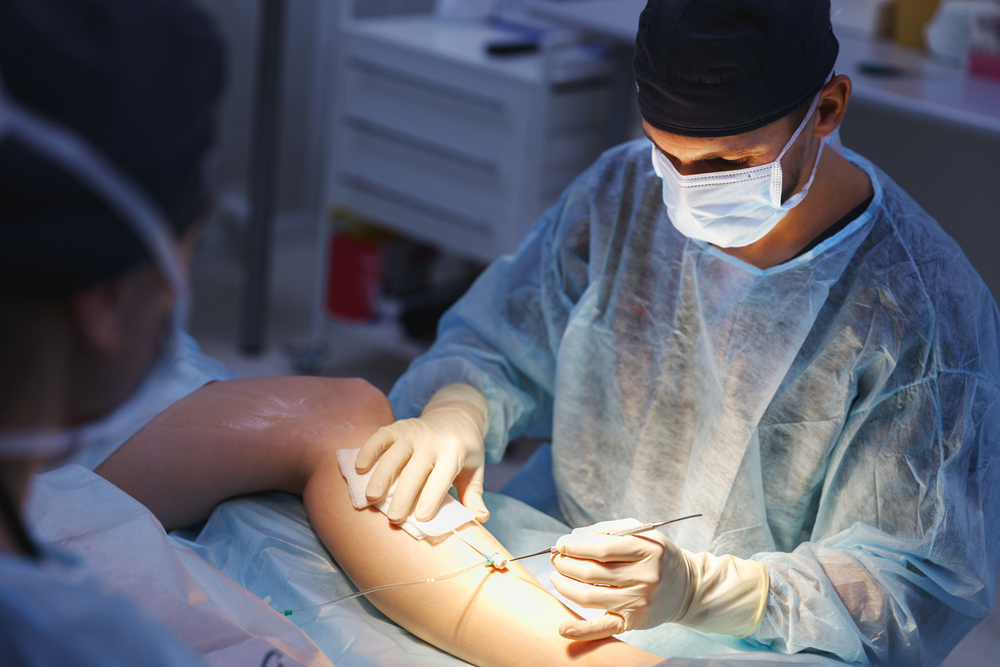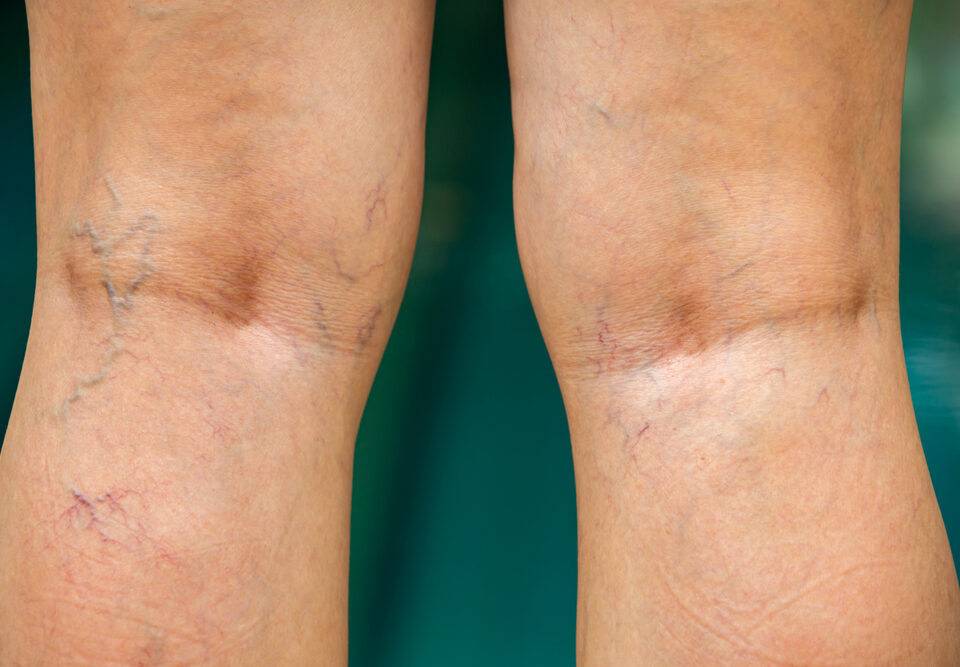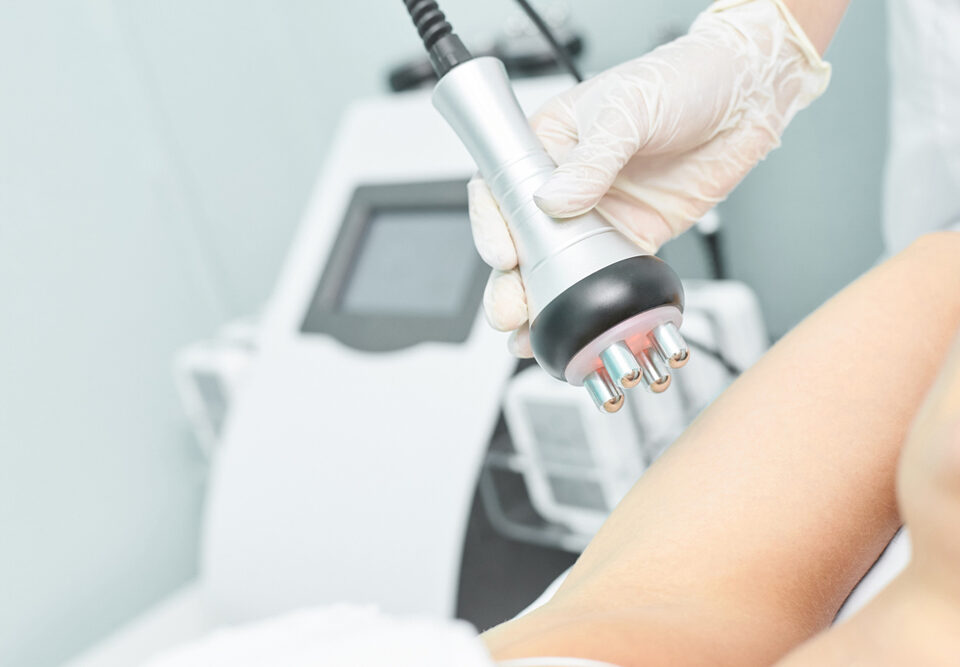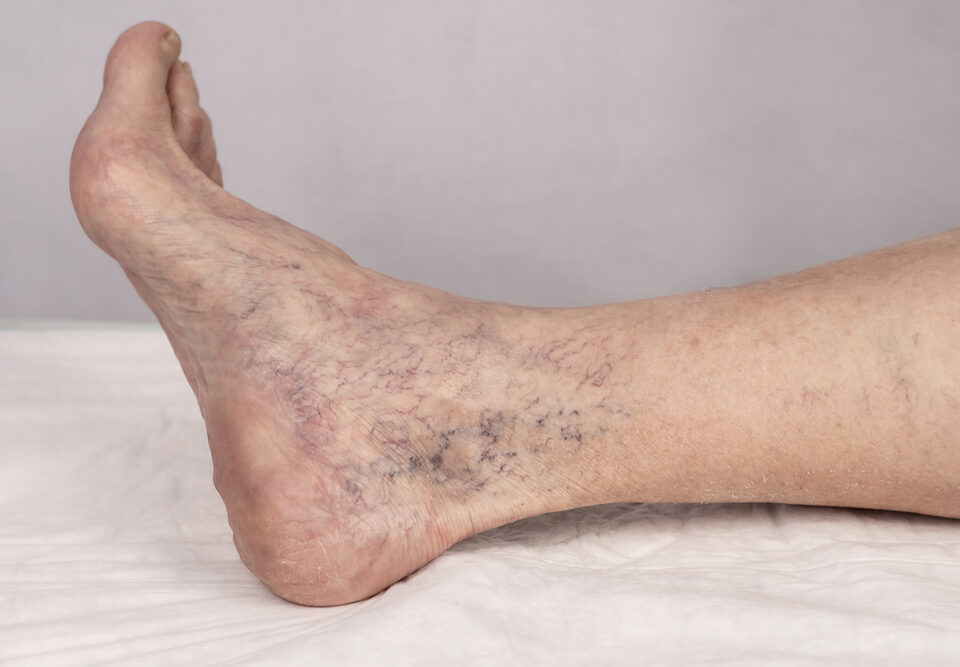Your vascular system – the veins and arteries that deliver oxygen to every living cell in your body – is critical to maintaining good health. When these blood vessels become blocked, serious trouble arises.
In many cases, patients with vascular problems like atherosclerosis, may experience no symptoms at all – until it’s too late. Symptoms of advanced vascular conditions might include intermittent pain that feels like cramps or muscle fatigue.
Individuals at Risk
Vascular disease becomes more prevalent as we age. Factors that increase your likelihood of developing vascular problems include the following:
- Increasing age
- Family history
- Injury
- Pregnancy
- Prolonged periods of inactivity
- Smoking
- Obesity
- Hypertension
- Diabetes
Types of Vascular Surgery
There are various types of vascular surgery, depending on the problem you have. Listed below are some of the conventional techniques for addressing issues affecting your vascular system.
1. Angioplasty and Stenting
Angioplasty and stenting is a minimally invasive procedure in which your surgeon opens a narrowed artery using a catheter-guided balloon. This procedure treats conditions that include:
- Carotid artery disease, a narrowing of the blood vessels that carry oxygenated blood from the heart to the brain
- Peripheral artery disease, a narrowing of the blood vessels that carry oxygenated blood to the arms and legs
2. Atherectomy
Atherectomy in another minimally invasive procedure in which a specialized catheter is inserted into a blocked artery that allows your vascular surgeon to cut and remove plaque from within your blood vessels. This method can be used to treat patients with peripheral artery disease and allows vascular access for patients who need dialysis.
3. Arteriovenous (AV) Fistula
During an AV fistula procedure, your vascular surgeon connects a vein in your forearm directly to an artery. This makes the vein stronger and wider, and more easily to be accessed for patients with kidney failure who require dialysis.
4. Arteriovenous (AV) Graft
Similar to AV fistula procedure that creates an access point for dialysis, an AV graft procedure also involves surgically connecting an artery to a vein – but in this case, via a synthetic tube (the “graft”).
5. Open Abdominal Surgery
Open abdominal surgery involves making a small incision to repair an aortic aneurysm or blockage of the aorta (the artery that travels from your heart down to the pelvis) where it passes through the abdomen. In many cases, your vascular surgeon will suture a graft into the aorta to redirect blood flow around the problem area.
6. Thrombectomy
A thrombectomy is a procedure to remove a blood clot from a vein or artery. It is done to restore proper blood flow and prevent life-threatening complications such as when a blood clot travels to the lungs (pulmonary embolism) or brain, which can cause a stroke. Angioplasty and stenting may also be performed at the same time as a thrombectomy.
7. Vascular Bypass Surgery
Bypass grafting is a surgical treatment that focuses on creating an alternate channel for blood flow, bypassing a damaged vessel.
This surgery may be used to treat patients with the following disorders:
- Vertebrobasilar disease, affecting blood flow to the back of the brain
- Peripheral artery disease, affecting blood flow to the arms and legs
- Renal vascular disease, affecting blood flow to the kidneys
- Mesenteric vascular disease, affecting blood flow to the intestines
8. Open Carotid and Femoral Endarterectomy
Open carotid and femoral endarterectomy involve the surgical removal of plaque within the inner lining of the arteries feeding blood to your brain or legs, respectively. This surgery is performed in cases of moderate to severe blockage.
Vascular Surgery in Florida
Your veins and arteries deliver nutrient-rich oxygen to every living cell in your body. Problems with your veins or arteries may show up as symptoms like intermittent pain or muscle fatigue – but often, there are no symptoms at all, at least in the early stages.
If you think you might have a vascular problem, contact the specialists at Premier Vein and Vascular. Our staff and specialists are happy to help. You may call us at 1-888-VEINCARE or (888) 834-6227 or visit our offices Tampa and Largo, Florida. You may also schedule an appointment through our online appointment request form.





